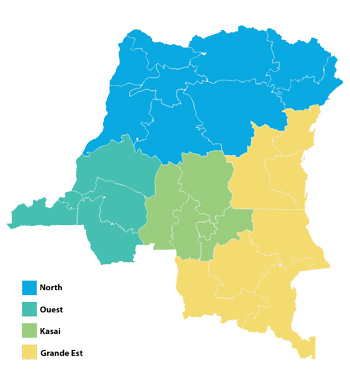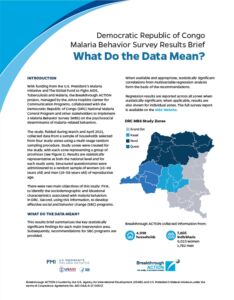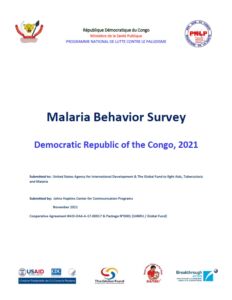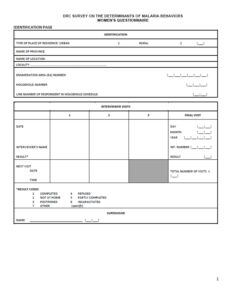Country Results
The Democratic Republic of the Congo Malaria Behavior Survey was fielded from March through April 2021. Survey results were analyzed in coordination with the National Malaria Control Program and released in 2022. The survey was carried out by the Breakthrough ACTION project in collaboration with the National Malaria Control Program, the U.S. President’s Malaria Initiative, and several other local organizations.
Study Zones

Survey Zones and Respondents
Key behaviors at a glance
41%
of children with fever were brought to a facility on the same or the next day after the fever began
81%
of respondents used a mosquito net every night of the week
42%


